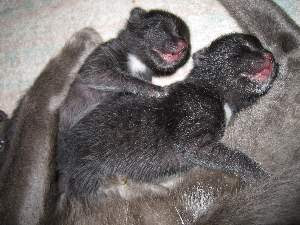“Whether one eats a cat or not is a personal choice, and I don't want to sway anyone one way or another. But if you do, there is one obvious cooking tip: always remember to remove the bell from the cat's collar before cooking.” ~Mike Royko
Eight dollars a pound.
If you want to have turkey for Christmas here in Ukarumpa, you can order one, but that’s what it’s gonna cost you.
Gone are the days of getting a free turkey when you spend fifty bucks at the grocery store.
Many people have asked about food here, what we can get, what we can’t get. What’s new and different? How expensive are things?
I think just about anywhere you go in the world, you will find new and different culinary tastes and traditions. For example, go to Louisiana and you get hot sauce. Boston, cream pies. Kentucky, fried chicken. California, mixed nuts.
That kind of thing.
Things are like that here in Papua New Guinea, too. Different areas of the country have their own varieties of traditional and available foods (we especially enjoyed snake beans, fresh pineapple, and pomolo during Village Living). And now we are here at this missionary center where, because of the store trying to cater to eighteen different nationalities, foods from all over the world converge. Or, I should say, converge from time to time, for example when an infrequent shipment from America happens to coincide with one of the more frequent shipments from Australia. Black and Gold brand foods are imported from Australia, and Sunny Select from California, so, disregarding Vegemite, we do have many things available to us that we are used to.
There are, of course, some things that are simply not available. And some things that may be available today but you may not find again for four months. Everyone including the POC cook has been waiting for popcorn to arrive in country ever since before we did.
When we were preparing for Village Living, a shopping trip into Madang would take several hours. Not because it was all that far away, but because it just takes that long to shop. You may have to go to six or eight stores to find everything you’re looking for. And even then, you might not find all of it.
Here in Ukarumpa, we don’t have the variety of stores, so either we have it or we don’t. A few days ago, my husband came home with a wide smile plastered across his face. “It’s Christmas!” he announced excitedly as he shoved several bags of rolled oats and popcorn in my direction.
This is the stuff of fairy tales, people.
Many things are comparable in cost, but overall, prepared foods (canned vegetables, Old El Paso taco kits, salad dressing, cake mixes, etc.) are significantly more pricy than you’d find in the states. At the same time, fresh fruits and vegetables at the market, unlike your favorite produce section, are very affordable. Twenty-five cents for a large handful of green beans, sixty cents for five good sized potatoes, forty cents for seven or eight medium sized carrots, twenty-five cents for a large head of leafy lettuce. Basic kinds of meat – the cows, chickens, and pigs – being enrolled in entry level marketing classes led by the turkeys – tend to be expensive.
Many things here must be made from scratch, either because it is not available any other way, or because it is otherwise cost-prohibitive. We have made our own salsa, as well as our tortilla chips. Mmmmmm … the salsa is really more of a pico de gallo, and the chips are made from wheat tortillas rather than corn, but I tell you what: chips and salsa never tasted so good!
And I never would have guessed that a homemade wheat tortilla, topped with refried beans (canned, though I’m sure if you wanted to you could make these from scratch, too), and this very same pico de gallo would be just as good as any taco, without the cost of meat. Try it sometime!
One day Paul got a good deal on some meat, so we planned to eat that for dinner with mashed potatoes and gravy, and green beans. Just your good ol’ basic meal plan, right? Yes, until you find out that this particular meat used to be inside the tail of a crocodile. Evan didn’t seem to mind. Seriously, it wasn’t bad. It tasted like chicken. Tough, chewy chicken, perhaps, but chicken nonetheless.
Thanksgiving day was a normal work and school day here, but of course we Americans have traditions to uphold. Our (also American) next door neighbors, Wayne and Maggie, invited us over for spaghetti, garlic bread, salad, and steamed vegetables. We took carrot cake for dessert, which, of course, fell in the middle because of the high altitude. Now if that isn’t a traditional Thanksgiving menu, I don’t know what is! (Remember, eight dollars a pound, people.)
The food was scrumptious, the company fabulous. The kids watched the Peanuts Christmas special, and the adults talked and laughed.
And, though we missed our families, we have no regrets.
Just new traditions.








